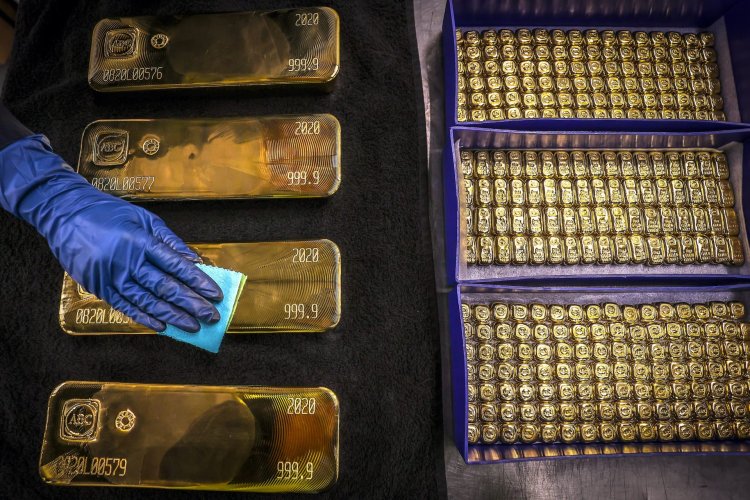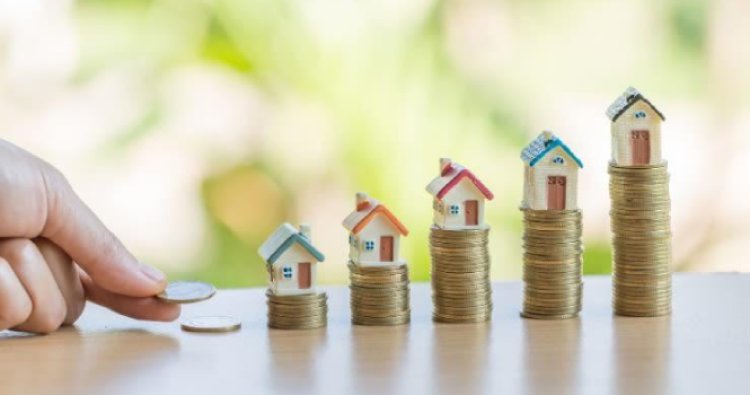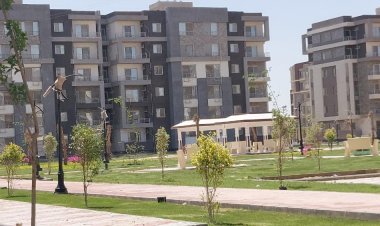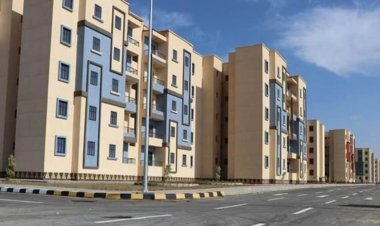Gold, real estate, or banks?.. The best ways to save and invest in Egypt

The “Alternative Policy Solutions” project at the American University issued a new report in which it discussed savings rates in Egypt, and where citizens invest their money to protect it from inflation.
The report was titled “How do savings rates increase amid inflation?” Saving rates in gold, real estate, and banking products indicate the existence of groups capable of investing despite the economic situation, as happened at the time of the Covid-19 crisis in a number of countries, as savings rates rose among the richest classes and decreased among the lower income classes, which indicates unfair effects. Economic crises in the classes of society and their saving patterns.
Gold...at the black-market price
The report explained that the traditional view of gold as a store of value led to an increase in demand for it during the first nine months of 2023, and Egyptians’ purchases of it during the first three quarters of the year recorded about 46.4 tons, compared to 38.5 tons during the same period last year, an increase of 20.5%. Gold purchase rates indicate that there are savings among Egyptians outside the usual official sources.
The report also indicated that gold is being traded in Egypt at a price higher than the international price by 55%, as its average price locally recorded 2760 pounds ($89) per gram of 21 karat - the most widely traded - without manufacturing, while the average price of the same karat globally recorded 57.23 dollars per gram. The equivalent of 1,765 pounds, which means calculating the price of gold locally according to the price of the dollar on the black market (48 pounds).
The report stressed that the increase in demand for gold as a savings vessel was not limited to it and extended to other savings vessels, such as real estate and bank deposits. A survey of the search engine “Aqarmap” showed that these three vessels give priority to Egyptians’ preferences for keeping their savings. This is happening as inflation rates continue to rise, recording around 40.3% last September, a level it had never reached before.

Real estate.. a long-term haven
According to the new report of the Alternative Policy Solutions Project, saving in real estate achieves limited development returns to the national product, represented by the demand for building materials and labor associated with construction, and the value added to the property ends once it is marketed.
Annual demand rates for real estate witnessed an increase of 34% last July, which was translated into the sales figures of major real estate companies in the absence of official statistics on the total size of the market, according to some real estate sector analysts at an investment bank.

Banking products: more security with lower returns
The report indicated that, despite the erosion of returns on banking products in the face of inflation rates, the low risk rates in saving through banking products compared to other channels, pushed family sector deposits in banks to continuous growth, especially in conjunction with exchange rate movements followed by the offering of products that appear to have high returns to absorb Domestic liquidity from the market in a traditional anti-inflation measure.
The report explained that saving in banking products is one of the most important savings vehicles that work directly to increase the growth rates of the national product by reinvesting it through the government as public investments or borrowers (private sector).
In January 2023, public banks offered investment certificates with an annual interest of 25%. Despite the high interest rate on these certificates compared to other products, the interest on them is negative in light of an average inflation rate of 33.7% during the first 10 months of the year.


 Shrouq
Shrouq 












